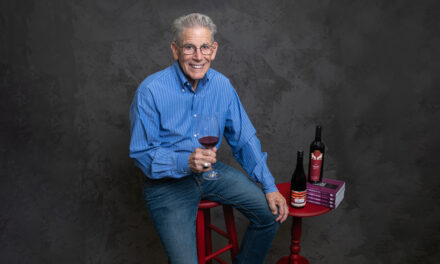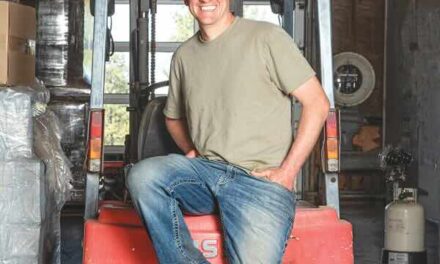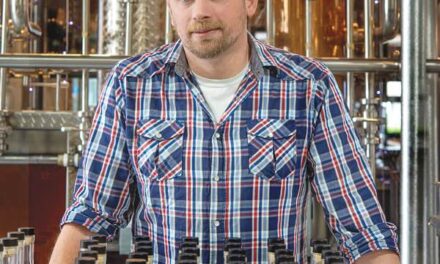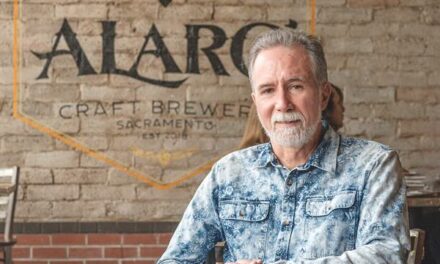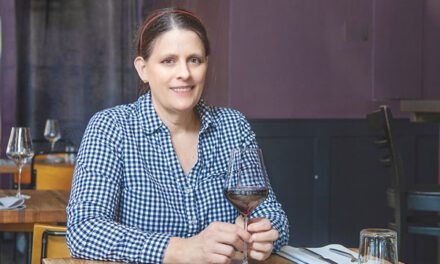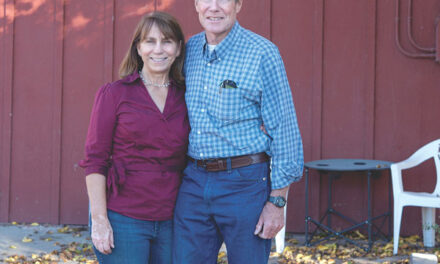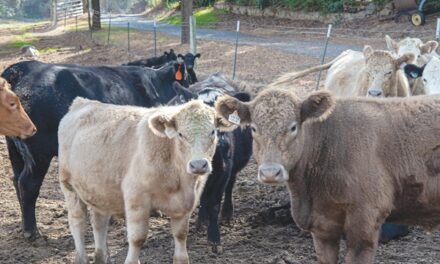Good Eats For All
There’s nothing elitist about farm-to-fork nutrition
By Gabrielle Myers
October 2022
There’s a myth about fine food and the farm-to-fork philosophy. It suggests the fresh and local approach is elitist, reserved for residents who earn enough money to be picky about food.
The myth goes that poor people are resigned to shop at cheap grocery stores, where they depend on processed, obesity-producing industrial food.
In Sacramento, hub of the farm-to-fork movement and part of the fertile valley that produces much of America’s food, we can prove this myth false. We can fight for food equity on behalf of everyone.
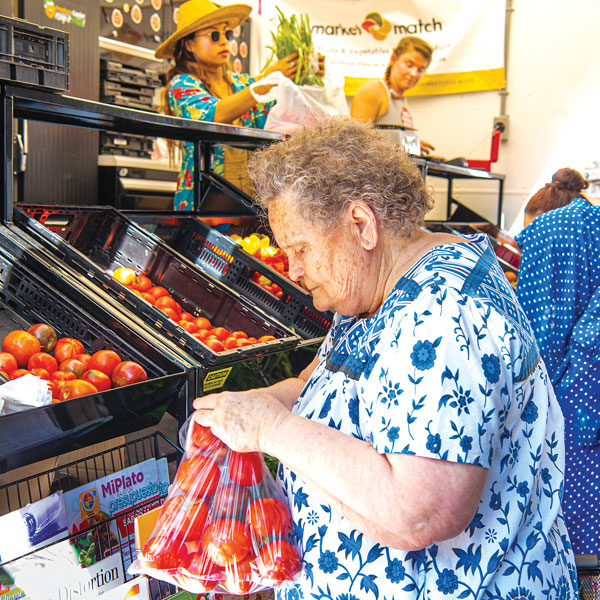
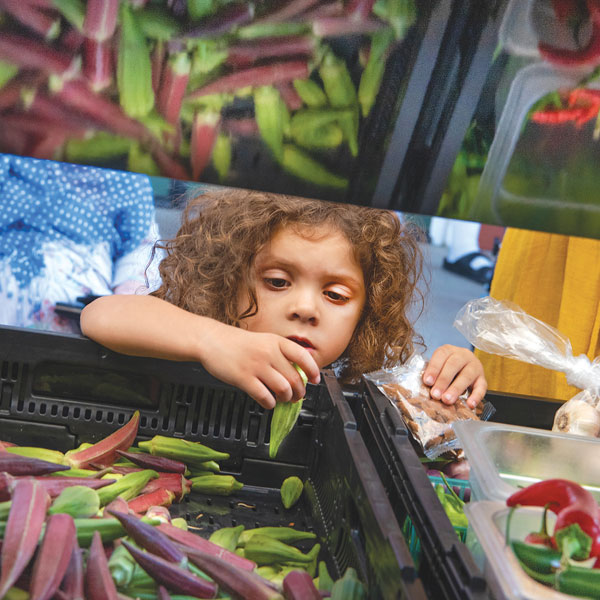
By addressing poor nourishment and ensuring easy access to fresh fruits and vegetables, we support a region where minds and bodies grow to full potential, benefiting the entire community.
A physically healthy and strong region built on nourishment thrives despite recession, a pandemic, and social and political unrest.
A pioneer of local food equity and security has quietly mentored and provided land access to lower-income farmers while distributing farm-fresh produce, along with pantry staples, to people hit hard by the pandemic and poverty.
In 2014, the Center for Land-Based Learning started the first leg of the West Sacramento Urban Farm, led by program manager Sara Bernal. Success inspired four more locations after the original at Fifth and C streets in West Sac.
Each farm has irrigation systems, aggregation areas, and wash and pack sites. A tool lending library and shared walk-in cooler are important features. The farms are leased to people who want to start a small, ag-based business. These future farmers are mentored throughout the process and receive links to farmstands and grocery stores.
So far, 21 people have gone through the program. Five farmers currently work the sites.
“If we want urban farms to help cure food-security issues, they must be subsidized,” says Bernal, noting financial help can come from local governments, partner agencies and fundraising.
Another key element of West Sac Urban Farm’s success in the fight for food equity is the Mobile Farmers Market. For two years, the mobile market has visited housing complexes and city parks, offering farm-fresh, organic produce and pantry staples.
With two stops on Tuesdays and two more on Thursdays, each reaching “food deserts” in Broderick and Bryte, the mobile market provides access to nourishment for residents who are unable to drive to find it.
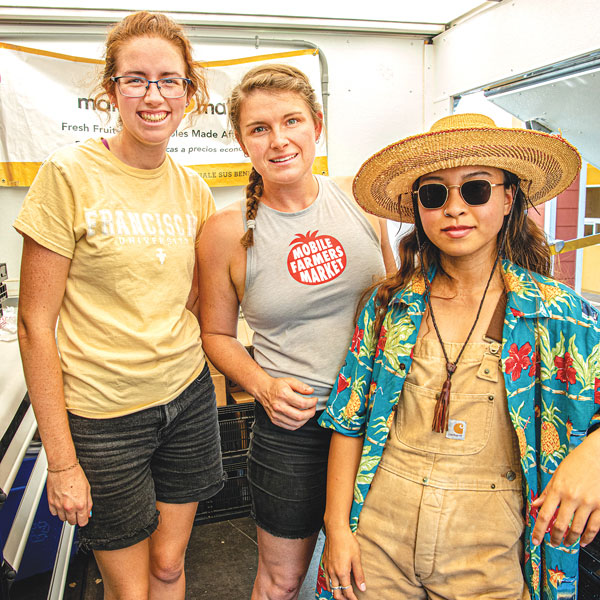
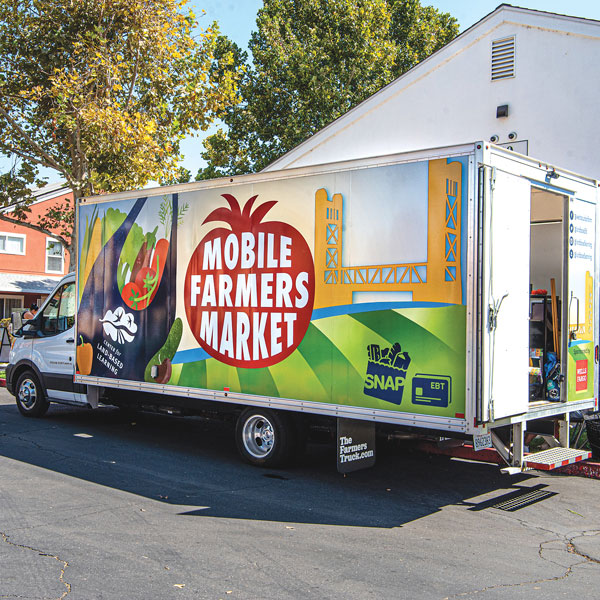
The mobile market accepts CalFresh benefits and offers a 50-percent discount. Eighty percent of the mobile market sales are based on CalFresh support.
With cookbooks in English and Spanish, recipe cards with seasonal produce, general health education materials and live cooking demonstrations, the mobile market is more than a farmers market on wheels. It’s a rolling center for nutritional health and knowledge.
In addition to providing access to organic produce, West Sac Urban Farm has become an educational center where future farm-to-fork leaders from lower-income communities are trained and mentored.
The Community Food Project’s Ambassadors Program recruits residents from affordable housing. Ambassadors learn about healthy food, our food system, the lack of access for low-income households and principles behind food equity.
With two-hour classes every Tuesday, a stipend of $20 an hour to work on the mobile market and a commitment of eight hours a week, each ambassador’s contribution is valued. Ambassadors are asked to offer solutions gathered from their communities and personal experiences.
Each ambassador has experience with poverty and a lack of access to healthy food. Solutions supported by the community are collected by Urban Farm and Center for Land-Based Learning and used to “advocate for change on the governmental level.”
“The leadership, talent and inherent potential that our residents all have hold many answers to the issues we face today,” Bernal says.
With society’s growing acknowledgement of systemic racism and its impacts on socioeconomic inequity, programs such as Urban Farm are models for new, more sustainable and caring systems where everyone prospers.
For information on West Sac Urban Farms, visit landbasedlearning.org.
Gabrielle Myers can be reached at gabriellemyers11@gmail.com. Her latest book of poetry, “Too Many Seeds,” can be ordered from fishinglinepress.com. Follow us on Facebook, Twitter and Instagram: @insidesacramento.



